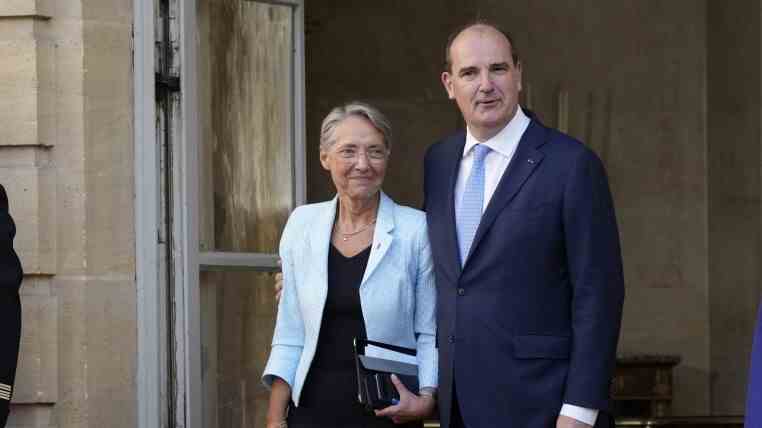Emmanuel Macron appointed former Labor Minister Élisabeth Borne as Prime Minister on Monday evening. The 61-year-old succeeds Jean Castex, who has held the post of prime minister for the past two years. Macron thanked Castex in a tweet on Monday, who “served France with passion and commitment”. Borne and Castex are similar in that both engage in politics in a way that relies little on vision and grand speeches. Like Castex, Borne is likely to do government work that is entirely in the service of the president.
Borne’s appointment came 21 days after the re-election of Emmanuel Macron, who began his second term on May 7. Macron has announced a shift towards more climate-friendly and less vertically structured politics for his second term. Macron was reacting, among other things, to the good performance of leftist Jean-Luc Mélenchon in the first round of the presidential election. In the past three weeks, however, the President has been remarkably quiet – he has not emerged with new ideas, but has left the media speculating day after day on who his new prime minister should be.
The appointment of Élisabeth Borne is now seen as a strengthening of the centre-left wing in the Macron camp, since Borne was close to the social democratic Parti Socialiste for years. At the same time, Borne, as head of government, can hardly be understood as a major upheaval. She has been part of Macron’s government team since the beginning, i.e. since May 2017. First under Prime Minister Édouard Philippe, from 2020 under Jean Castex. Borne was first Minister of Transport, then Minister of the Environment from 2019, and finally Minister of Labor in 2020.
Immediately a declaration of war from the left-wing opposition
As expected, the opposition reacted sharply to Borne’s entry into office on Monday. The leftist Jean-Luc Mélenchon, who won almost 22 percent of the votes in the presidential election with an anti-capitalist, EU-critical and radically ecological program, said Borne embodies “continuity”. The “social abuse” of the population will continue. Mélenchon said Borne “perhaps thinks of herself as a woman of the left, but for us she doesn’t carry that label.” Élisabeth Borne has been a member of Emmanuel Macron’s La République en Marche (LREM) party since 2017.
President Emmanuel Macron took his time appointing the new government. His party could lose the majority in the parliamentary elections in June.
(Photo: BENOIT TESSIER/REUTERS)
Regardless of Borne’s political beliefs, the new prime minister represents a small revolution: it is the first time in 31 years and the second time that a woman has become head of government in France. In 1991, Socialist President François Mitterand appointed Edith Cresson as Prime Minister. Cresson lasted only nine months and faced intense sexism in the media and also in the National Assembly within her own party. Cresson, now 88, called Borne’s appointment “a very good choice” on Monday and said it was “high time” that a woman took over. It is “a scandal” that it is still news in France that women hold the highest positions in the state. In recent polls, three-quarters of French people said they would like a woman to lead the government. According to former Prime Minister Edith Cresson, this is a sign that “it is politics that has a problem with machismo, not the country”.
The future of the newcomers depends on the parliamentary elections in June
Borne’s future as prime minister will also depend on the general election. In June, the French elect the new members of the National Assembly. Macron’s LREM has held the absolute majority there since 2017. A comfortable situation, but one that is endangered. Left-wing Mélenchon has summed up his campaign for the parliamentary elections in an easy-to-remember formula: he wants to be elected prime minister. Should a left-wing alliance, which also includes France’s Greens and the extremely weakened Socialists, actually win a majority in parliament, Mélenchon could pressure President Macron to make him prime minister. That would mean a massive political deadlock for Macron.
Initial polls consider a left-wing majority in the National Assembly to be possible. At the same time, Macron has broadened the base on which to build his parliamentary majority. LREM (which has renamed itself “Renaissance”) will form a coalition with ex-Prime Minister Édouard Philippe’s new party (“Horizons”), among others.

